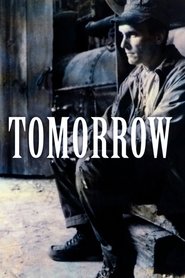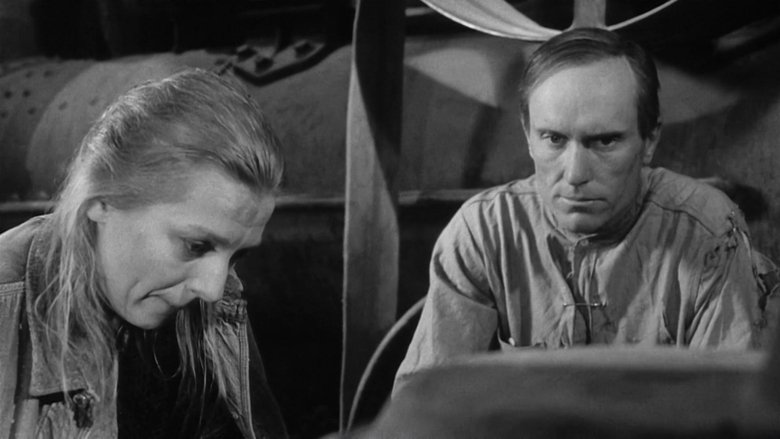“Tomorrow 1972” is a documentary that presents a clear picture of the problems society faces today. It’s like a sharp arrow hitting the bullseye of reality. The movie provides an honest assessment of how humanity has been careless with natural resources and how our actions have affected the environment. The film shows us what we have done wrong and what we can do to fix it, like a beacon of hope guiding us towards a better future.

CLICK HERE⇣⇣⇣🎦_Watch Tomorrow 1972 English Subtitles_
Review
When a movie tackles a daunting and complex issue, it’s easy for the story to get bogged down in preaching or pandering. However, that’s not the case with the 2015 movie “Tomorrow.” This documentary-style film explores the challenges facing our planet and profiles the people who are taking innovative steps to address them.
The storyline of “Tomorrow” is simple enough: it’s a call-to-action. The film encourages audiences to look at the world around them and take meaningful action to make positive change. However, what sets “Tomorrow” apart from other films with similar messages is how it presents its material.
Rather than relying on experts or talking heads to relay information, “Tomorrow” lets its subjects do most of the heavy lifting. Over the course of the film, viewers meet a diverse group of people from all over the world who are working on sustainability projects. There’s an urban farmer in Detroit, an algae farmer in France, and a group of high school students in India who built their own composting system – just to name a few.
Through these personal stories, viewers see how small efforts can add up to big impact. It’s an inspiring message that never feels preachy or condescending.
Of course, no documentary is complete without some hard facts and figures. “Tomorrow” doesn’t disappoint on this front either. Viewers learn about everything from soil depletion to ocean acidification through clear infographics and charts.
The film also takes a deep dive into alternative economic models and how they can benefit communities. It examines everything from time banking – where people trade services instead of money – to community-supported agriculture programs.
One thing I appreciate about “Tomorrow” is how it highlights solutions that are already working on a local level. Too often, movies about climate change or environmental issues can feel overwhelming because they tackle such huge problems with seemingly no solutions in sight. By focusing on real-world examples of positive change happening now, “Tomorrow” shows that there is hope for a better future.
Of course, no movie is complete without a talented cast of actors (or subjects, in this case). Some of the standout individuals profiled include Rob Hopkins, founder of the Transition movement, and Vandana Shiva, an Indian environmental activist.
Others featured in the film include Pierre Rabhi, a French farmer who advocates for agroecology, and Emmanuel Druon, who started an urban farming project in Detroit. Each person brings their own unique perspective and expertise to the discussion at hand.
Beyond its compelling cast of characters, “Tomorrow” also boasts an impressive score composed by Mathieu Gompel. The music is playful and hopeful – a perfect match for a film that’s all about finding solutions to seemingly insurmountable problems.
Not surprisingly, “Tomorrow” has garnered plenty of praise from critics. The film won the César Award for Best Documentary Film in 2016 and has been lauded for its optimistic tone and fresh approach to environmental issues. However, it’s not just professional critics who are singing its praises – audiences have taken notice too. On Rotten Tomatoes, “Tomorrow” has a 95% approval rating from everyday viewers.
Filming “Tomorrow” was no easy feat. The movie takes viewers all over the globe to explore various sustainability projects. However, directors Cyril Dion and Mélanie Laurent make it look effortless thanks to their skilled camerawork. Whether they’re documenting rooftop gardens or bustling city streetscapes, every shot feels intentional and carefully composed.
The editing of “Tomorrow” also deserves recognition. With so many different stories to tell – each with its own unique perspective on sustainability – it would be easy for the film to feel disjointed or overwhelming. However, Dion and Laurent weave everything together seamlessly into one cohesive narrative.
Critics might argue that “Tomorrow” oversimplifies the issues facing our planet. After all, can small-scale projects really address climate change on a global scale? However, I would argue that “Tomorrow” never claims to have all the answers. Instead, it’s a starting point – a way to inspire everyday people to take action and do their part in preserving our planet for future generations.
In conclusion, “Tomorrow” is a must-see film for anyone who cares about the health of our planet. Its hopeful message and inspiring subjects provide a much-needed antidote to the doom-and-gloom news cycle we’re so accustomed to. As one subject puts it in the film: “We need stories of possibilities.” And that’s exactly what “Tomorrow” delivers.
Technical Data

- Runtime : 103
- Release : 1972-04-09
- Genre : Drama, Romance
- Cast : Robert Duvall as Jackson Fentry, Olga Bellin as Sarah Eubanks, Sudie Bond as Mrs. Hulie, Richard McConnell as Isham Russell, Peter Masterson as Lawyer Douglas
- Crew : Horton Foote as Screenplay, William Faulkner as Story, Dick Vorisek as Sound Engineer, Michael Haley as Assistant Unit Manager, Paul Roebling as Producer
- Popularity 2.408
- Budget : 0
- Revenue : 0
- Company : Filmgroup Productions
- Summary : A lonely farmer takes in a pregnant woman and looks after her. After she gives birth, tragedy strikes.
- Tagline :
